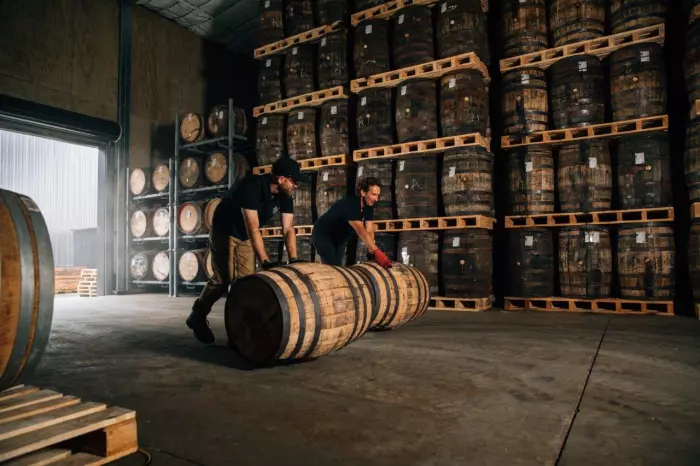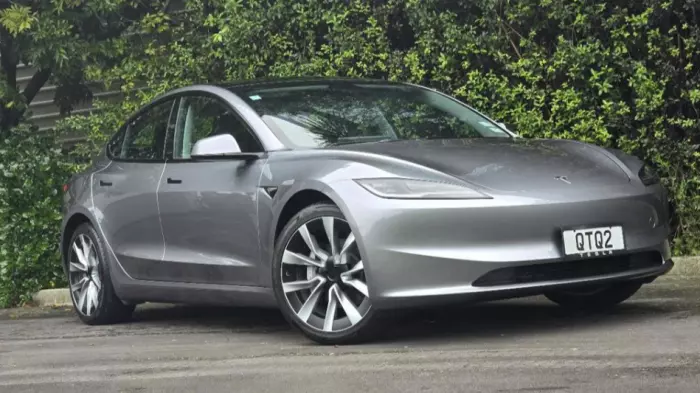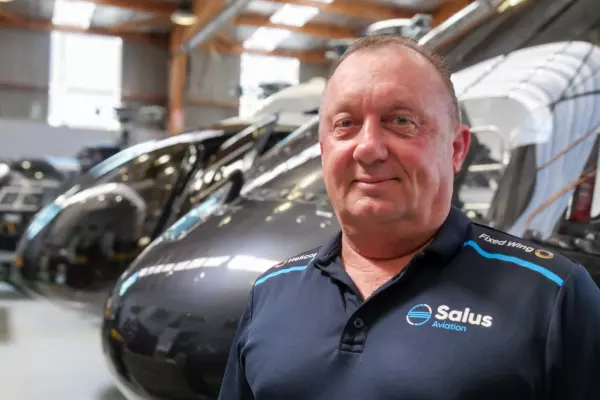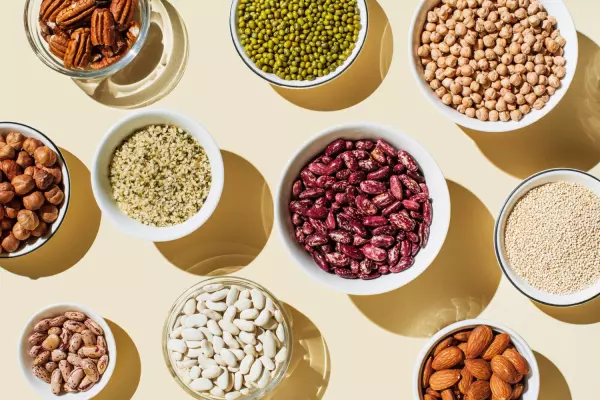Tucked away in several modest sheds in an industrial zone just south of Auckland's Bombay Hills is the Pōkeno Whisky Company.
There's little clue that this could be the heart of a New Zealand commercial whisky revolution.
The distillery, started by Matt Johns and wife Celine about four years ago, has just released its first batch of single malts in New Zealand, initially through 120 Liquorland and several specialist whisky outlets.
Its core "new world" range will start at $99 a bottle for its "origin" whisky and $122 for its "discovery" and "revelation" single malts, aged in bourbon and sherry and red wine casks respectively.
Its special-edition "prohibition" whisky, aged in barrels initially used by Liberty Brewing to produce its Porter, will retail for closer to $200 a bottle.
But Kiwis won't see as much of the smooth tipple as they might like.
Pōkeno has designs on exporting about 95% of what it produces. It's just sent its first shipments to France, the UK and Germany and is hoping to have product in the US market before Christmas.
Matt Johns, originally from the UK, has been in the whisky trade since 1999. His work has included brand development with big-volume distilleries Glenmorangie and Tullibardine in Scotland.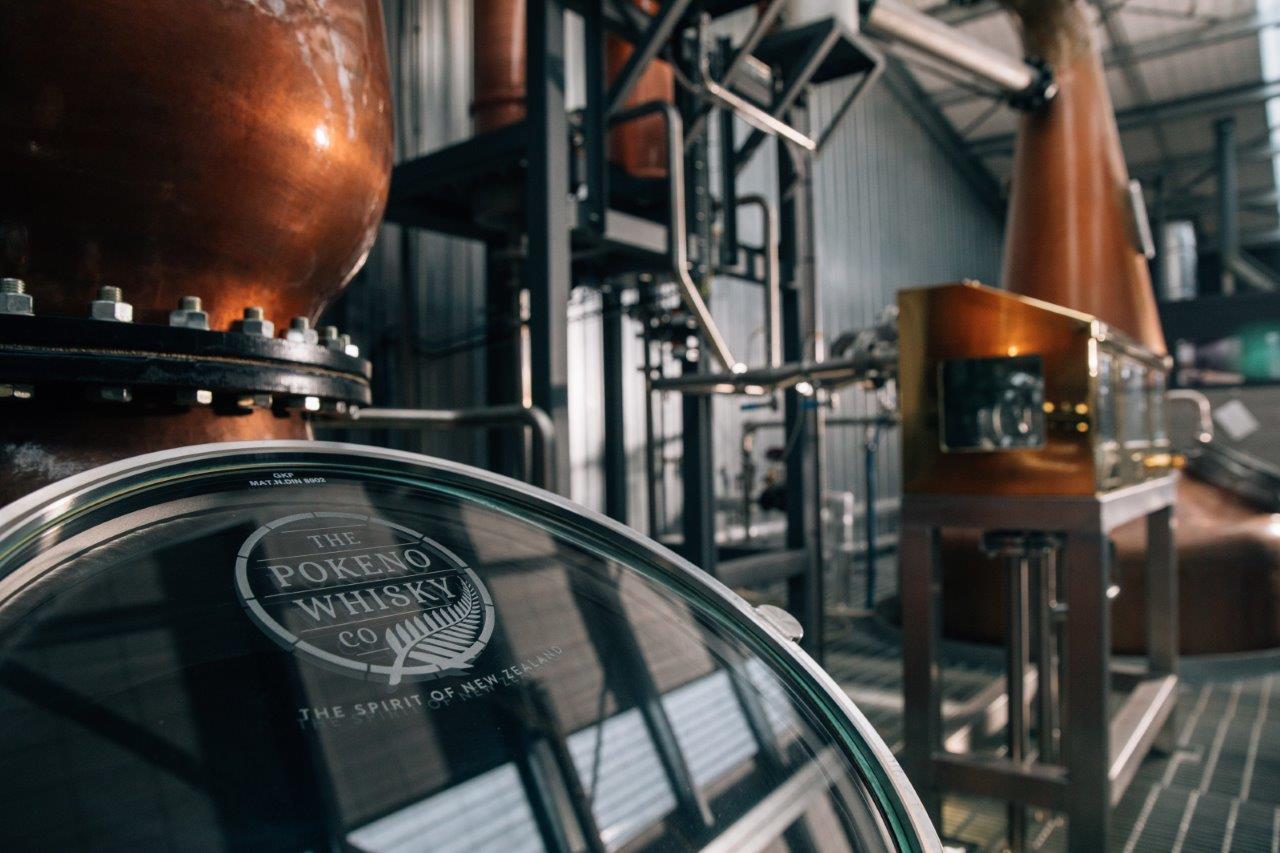
As an indication of the NZ whisky industry’s fledgling nature, he said, total annual whisky output here equates to about one week of an “average-sized” Scottish distillery.
Pōkeno started off producing 50,000 litres of pure alcohol. This year, the plant will generate about 70,000 litres, and Johns said its capacity is currently about 250,000 litres.
Johns, 48, moved from France to New Zealand about 10 years ago with Celine and their young family.
He said they'd played with the idea of producing whisky but had formally “started spending money” only in 2017.
Water source
The choice of location was mainly linked to the supply of spring water via Pōkeno’s aquifer – the same source used by its neighbour, Pure NZ Water.
“For us as craft distillers, Pōkeno is a hidden treasure, with the supply of pure spring water from the surrounding volcanic hills, alongside climate conditions that accelerate the maturation process and flavour development while in the barrel.”
The firm has secured rights to 100,000 litres a week, which is used only for whisky production.
Johns said the end game is to produce a top-quality, niche product without any compromises.
But he acknowledged that it was soaking up a lot of capital, initially spent on the distillery itself – constructed by Dunedin-based Farra Engineering, a company that has been involved with Speight's and Emerson's Brewery. Pōkeno’s two copper stills were imported from Scotland. 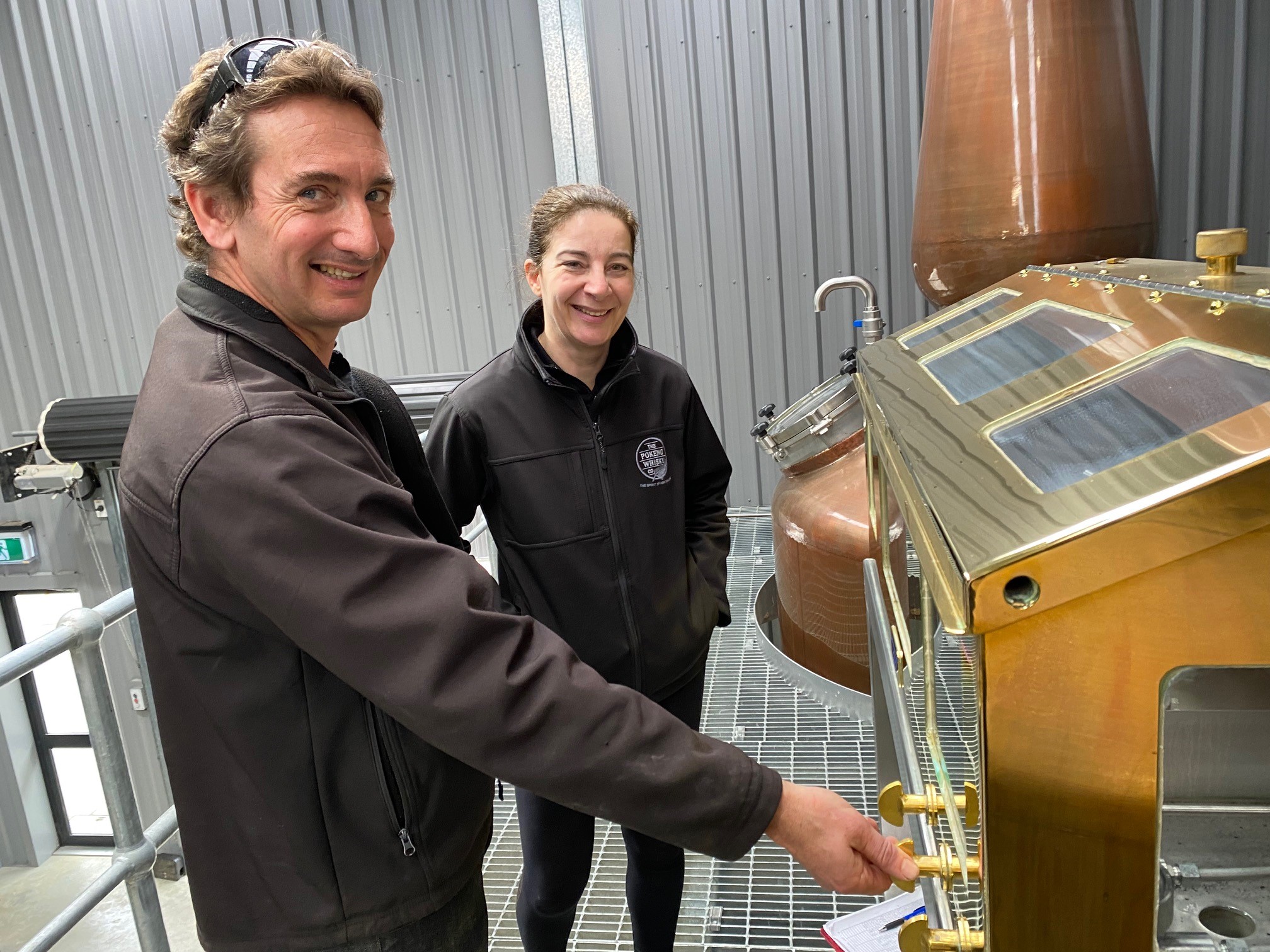
Matt and Celine Johns. (Image: BusinessDesk)
“Now it costs more than $1.5 million a year just to keep the lights on,” Johns said.
And with three-and-a-half years of production still sitting in about 1,800 barrels, insurance premiums are “steep”, he said.
He’s also just brought in an in-house cooper to make barrels – currently bought from Tennessee whiskey company Jack Daniel's. The barrels' lifespan is two distillations.
But without the same volume pressures that the big-brand producers face, Johns and head distiller Rohan McGowan are enjoying the freedom to ferment for longer, distil more slowly and experiment to extract the maximum body and flavour from the barley, which is sourced from three family-owned farms in the South Island.
Johns said craft whisky production tends to follow the evolution of craft beer brewing in countries, and NZ is now at the start of that.
“There are a number of players now stepping up and building bigger plants, which is good for the industry and good for the category."
Defining NZ whisky
Pōkeno is now part of a newly formed NZ Whisky Association, an industry and advocacy group that wants to define what NZ whisky actually is. Part of that has meant drawing up new whisky guidelines.
Its members so far include commercial distilleries Cardrona in the South Island and Auckland’s Thomson Whisky, 1919 Distilling and Waiheke Whisky.
At present, Johns said, NZ is the only country in the world that he is aware of that has no legislation governing its whisky.
"You could literally put product into a barrel for a day, bottle it up and label it as whisky.
“When you’ve got companies investing into quality product aimed at a global market, we need to protect that investment, but also protect the consumer.”
He said the rules have left room for creativity, but there are “base rules” and that means using malted barley as the base, distilling the product in a pot still (generally copper), and storing it for at least two years in NZ in a wooden cask for it to become fully matured.


